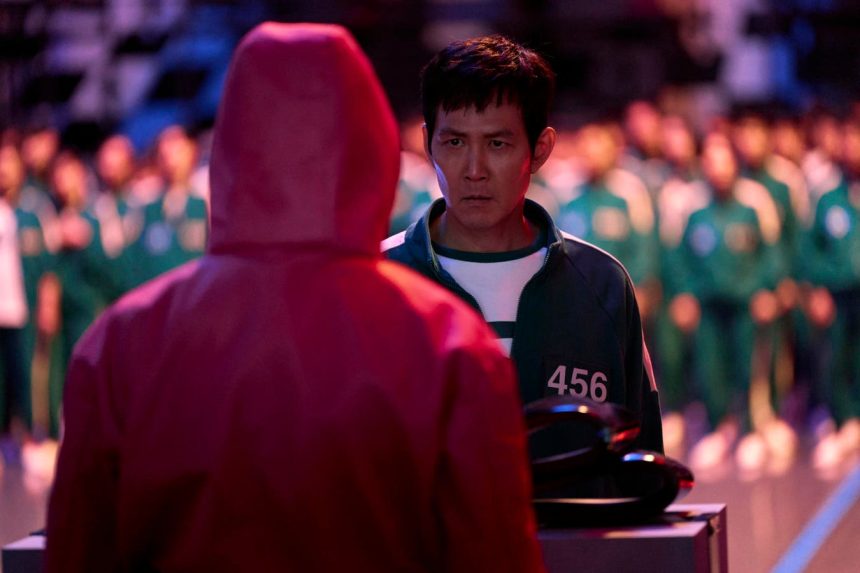Squid Game Season 2: A Critical Divide
The highly anticipated second season of Squid Game, Netflix’s most-watched series, arrived to a flurry of diverse reactions. From enthusiastic praise to harsh criticism, the show’s reception underscores the challenge of meeting sky-high expectations. While some viewers found the initial episodes slow-paced, others considered them the season’s highlight. Character reception was equally varied, with some applauding the inclusion of figures like Thanos and Hyun-ju, while others found them underdeveloped or irritating. The cliffhanger ending, a setup for the promised third season, proved particularly divisive, sparking both excitement and frustration amongst viewers. This mixed bag of opinions from both casual viewers and professional critics has sparked significant debate and discussion surrounding the show’s direction and merits.
Divergent Critical Perspectives
Even professional critics struggled to find common ground in their assessment of Squid Game’s second season. Some publications, like Entertainment Weekly and Inverse, expressed disappointment over the reduced emphasis on the games themselves, arguing that only three main games and a collection of mini-games within the pentathlon were insufficient. Inverse went so far as to cite a lack of deaths as a major flaw. Conversely, critics from The New York Times and Mashable seemed to favor a less game-centric approach, finding the games repetitive or drawn out. This fundamental disagreement over the core appeal of the show fueled further polarization, with some viewers yearning for a closer adherence to the original season’s formula, while others criticized any perceived repetition.
Lost in Translation: Cultural Nuances and Humor
A significant point of contention revolved around the show’s humor and cultural references. The Hollywood Reporter, for instance, criticized the season for lacking the "fun and whimsy" of the first. However, many of the comedic moments and cultural allusions were deeply embedded within Korean language and context, potentially lost on international audiences. Instances like Thanos and Nam-gyu’s merry-go-round scene, set to a cheerful Korean children’s song, and the use of the iconic Korean fight song "To You" during the deadly pentathlon carried layers of irony and meaning that might not translate effectively through subtitles alone. Even seemingly simple dialogues, like Yong-sik’s comment about the stone during the pentathlon, held culturally specific imagery that resonated strongly with Korean viewers but could be easily missed by others.
The Burden of Success: Impossibly High Expectations
The varied responses to Squid Game’s second season highlight the immense pressure faced by its creator, Hwang Dong-hyuk. Balancing the expectations of both domestic and international audiences, selecting culturally relevant games accessible to a global viewership, and incorporating humor and references that resonate across cultures presented significant challenges. The show’s unprecedented success created a unique dilemma: replicating the shock and novelty of the first season was nearly impossible, yet deviation from the established formula risked alienating viewers. This inherent tension, combined with the extensive pre-release promotion by Netflix, arguably contributed to the divided reception.
Rewatching and Rediscovering: Hidden Depths and Clues
Despite the criticism, Squid Game season 2 offers a treasure trove of subtle details and clues for attentive viewers. Director Hwang’s approach encourages close observation and interpretation, rewarding multiple viewings with new discoveries. From Player 001’s hints about his true identity to the Front Man’s potential link to organ harvesting and the symbolic inclusion of a fork with kimbap, the show invites viewers to piece together the puzzle. Supplemental content released by Netflix, including explanations of Korean games and actor interviews, further enriches the viewing experience. Even for those initially disappointed, revisiting the season with fresh eyes and access to these resources can unlock a deeper appreciation of its intricacies.
A Global Phenomenon: Continued Engagement and Discussion
The controversy surrounding Squid Game’s second season has, paradoxically, fueled its continued popularity. The negative reviews have prolonged public discourse, prompting viewers to form their own opinions and contributing to its sustained top ranking on Netflix globally. The show’s enduring appeal lies in its ability to spark conversation, generate curiosity, and encourage repeat viewings. Whether viewers ultimately embrace or reject the second season, its impact on popular culture remains undeniable, testament to its unique blend of suspense, social commentary, and cultural resonance. Ultimately, the debate itself is a testament to the show’s enduring power to captivate audiences and spark discussion worldwide.



